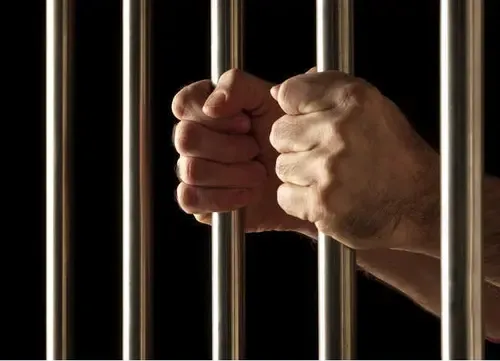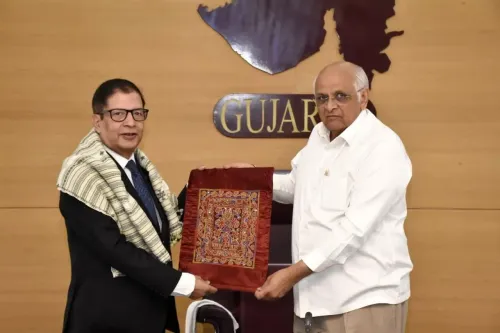Why Are Over 10,500 Indians Imprisoned Abroad?

Synopsis
Key Takeaways
- 10,574 Indian nationals are imprisoned worldwide.
- 43 facing death row across several countries.
- UAE has the highest number of Indian prisoners.
- Indian government actively monitors and supports imprisoned nationals.
- Legal aid and financial assistance are provided through ICWF.
New Delhi, July 25 (NationPress) An alarming 10,574 Indian nationals are currently incarcerated in prisons worldwide, with 43 individuals facing the death penalty, as reported to Parliament on Friday.
According to Minister of State for External Affairs Kirti Vardhan Singh, in response to a Lok Sabha inquiry, the highest concentration of Indian prisoners is in the United Arab Emirates (UAE), where 2,773 Indian citizens are detained.
Following closely is Saudi Arabia with 2,379 inmates and Nepal with 1,357. Other nations with notable Indian prisoner populations include Qatar (795), Malaysia (380), Kuwait (342), the United Kingdom (323), Bahrain (261), Pakistan (246), China (183), among others.
Conversely, several countries report only one Indian prisoner, including Angola, Belgium, Canada, Chile, Egypt, Iraq, Jamaica, Mauritius, Senegal, Seychelles, South Africa, Sudan, Tajikistan, and Yemen.
Among the total, 43 Indian nationals find themselves on death row in various countries. The UAE has the most, with 21 cases, followed by Saudi Arabia (7), China (4), Indonesia (3), and Kuwait (2). Additionally, one Indian is facing execution in the USA, Malaysia, Oman, Pakistan, Qatar, and Yemen.
The ministry highlighted that due to stringent privacy regulations in various nations, detailed information on imprisoned foreign nationals may not always be accessible unless the individuals provide consent for disclosure. The government reassured that Indian diplomatic missions abroad are vigilant about these matters, offering comprehensive legal and consular support.
Efforts for legal representation, consular access, and initiatives aimed at early release or repatriation are conducted through bilateral discussions, judicial actions, and, when necessary, pleas for amnesty. Furthermore, the Indian Community Welfare Fund (ICWF) is being utilized to deliver financial and legal aid to those in need, especially for legal representation and repatriation expenses.
The government is also actively collaborating with Sri Lanka to secure the release of 28 Indian fishermen—27 from Tamil Nadu and one from Puducherry—who are currently in Sri Lankan custody.
As India broadens its global engagement, the safety and legal rights of its diaspora remain paramount for diplomatic missions operating overseas.









